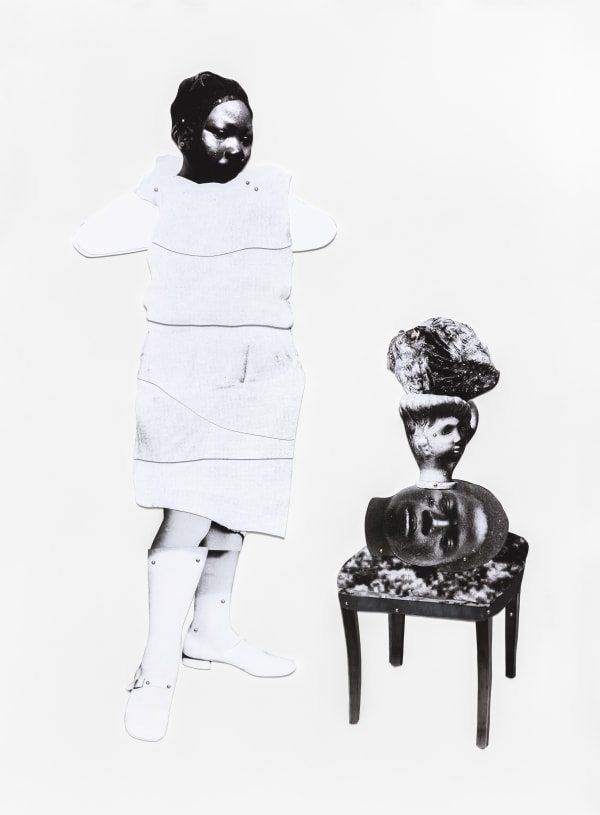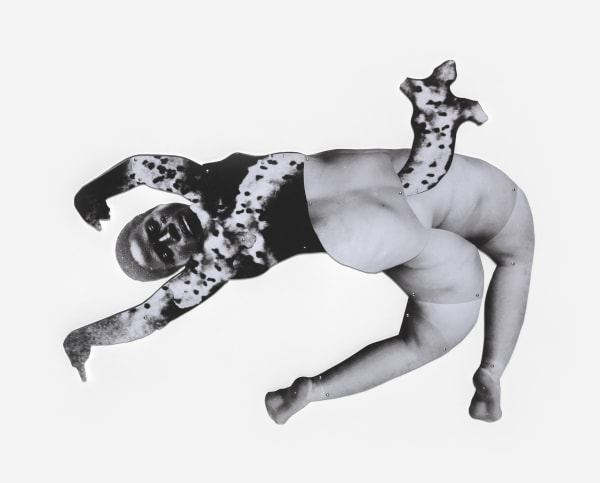-
Stevenson Johannesburg is pleased to present Hours After, Frida Orupabo’s first solo exhibition on the continent. Orupabo describes her process as an unearthing of the archive, mining ‘the interaction and clash between past and present, self-representation and imposed representation’. The title, Hours After, makes reference to the 1986 album by experimental American composer Sun Ra, while alluding to temporal shifts in the lives of the materials and subjects that inform Orupabo’s collages. In this new body of work, spanning sculpture, film and works on paper, Orupabo combines fragments of colonial, personal and modern archival material sourced from digital and analogue media to disassemble the politics of care, childbirth and mothering through the perspective of Black womanhood. Hints of pale colour are introduced to Orupabo’s traditionally monochromatic repertoire, and domestic furnishings, once peripheral items in her tableaux, take on greater significance as she centres the contexts of her individual figures.
-
-
 Resting head, 2020
Resting head, 2020 -

-
 Woman Flying II, 2020
Woman Flying II, 2020 -

-
 In bed, 2020
In bed, 2020 -
 Mother and child I, 2020
Mother and child I, 2020 -
-
Prices exclude taxes and shipping
Frida Orupabo: Hours After
Previous viewing_room















